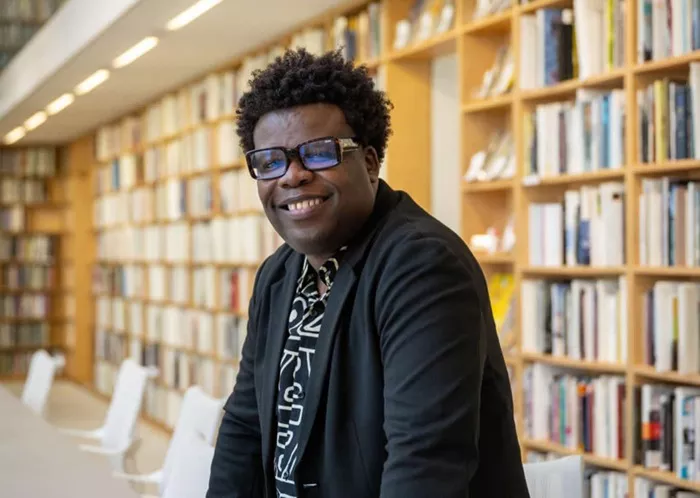Mark Turcotte, recently named Illinois Poet Laureate, never intended to build a life in Chicago. But a detour in 1992—following the death of his estranged father—led him to the city’s vibrant poetry scene, shaping both his voice and his career.
At the time, Turcotte was working on an oil crew in West Texas. After handling his father’s affairs on the Turtle Mountain Chippewa reservation in North Dakota, he stopped in Chicago to visit a former high school English teacher. The brief visit turned into a life-changing stay.
“It was a sneaky way to get me to stay in Chicago and get me to go to poetry readings,” Turcotte recalled. He began helping remodel his teacher’s basement and soon immersed himself in the city’s thriving poetry circuit.
During the 1990s, Turcotte became a regular at the Green Mill’s poetry slam and the Guild Complex at the Chopin Theatre. “On any given night, you could read poetry on a stage,” he said. By day, he hung sheetrock; by night, he read verses. That summer, he won the inaugural Gwendolyn Brooks Open Mic Award.
Brooks, then Illinois Poet Laureate and one of the most respected voices in American poetry, became an early champion of Turcotte’s work. She named him a “Significant Illinois Poet,” invited him to read at official state events, and endorsed his debut collection The Feathered Heart for its “exciting energy and venturesomeness.”
“I would never dare say that Gwendolyn and I were friends,” said Turcotte. “But she was always encouraging. She was the model I was able to witness. She wanted young people to feel as valued for being artists and writers as people are for being sports heroes.”
Turcotte, now 67, draws heavily from his Chippewa heritage and upbringing on a North Dakota reservation. His collection Exploding Chippewas explores themes of identity, memory, and cultural survival. In his poem “Flies Buzzing,” he writes:
As a child I danced
to the heartful, savage
rhythm
of the Native, the
American Indian…
Now serving a four-year term as poet laureate, Turcotte is focused on spotlighting Native voices in a state that, despite its Indigenous history, has no reservations and a relatively small visible Native population.
“Illinois is one of those states where everybody got moved out,” he said. “We always sort of get relegated to history. There are people who think there aren’t any Natives anymore.”
Turcotte hopes to challenge that perception. He points to Andrea Carlson’s You Are On Potawatomi Land mural on the Chicago Riverwalk as a potent example of contemporary Native activism through art.
Yet Turcotte’s appointment comes with the weight of legacy. Previous laureates include literary titans Carl Sandburg and Gwendolyn Brooks—Pulitzer Prize winners with national acclaim. In contrast, Turcotte is a lesser-known figure outside poetry circles.
Still, he remains committed to connecting with young people and expanding the role of poetry in public life. “I’ve always had a day job,” said Turcotte, who is now a Senior Lecturer and Distinguished Writer-in-Residence at DePaul University. “I’ve never been that lucky as a writer. Part of it is that I’m a poet.”
His laureateship comes with a $35,000 annual stipend—modest by artistic standards, but perhaps proof that, even now, there’s a little money in poetry.

